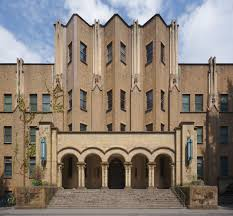AI for Urban Analytics, Prediction, and Design
The project iuses Artificial Intelligence for improving architectural practices to foster the development of sustainable urban environments.


About
This project leverages artificial intelligence (AI) to enhance urban planning and architectural design and foster the development of sustainable urban environments. By integrating AI technologies, such as machine learning (ML) and evolutionary algorithms, the project seeks to revolutionize how urban spaces are examined, predicted, and designed, ensuring they meet the demands of future society while promoting sustainability.
Predictive Analysis
We utilize historical urban and socio-demographic data to forecast the impacts of urban renewal projects on society. This predictive capability will allow stakeholders to make informed, data-driven decisions, minimizing risks and maximizing the benefits of urban development initiatives. By understanding social impact, urban planners can better strategize and implement projects that align with long-term sustainability goals.
Optimization
Optimization research is a critical component of our project. We employ advanced algorithms to analyze vast amounts of data and search for the best solutions.
News
2025
2024
2023
Funding
- Ministery of Science and Technology
- Ariel University
- Green Group LTD









